People go to Ethiopia to admire the virgin and amazing nature of the African continent. Here is the picturesque Lake Tana, the bizarre reliefs of the Ethiopian highlands, national parks with rare endangered species of animals and the endless savannah. Many tribes living on the territory of the country live exactly the same as hundreds of years ago. The tourist is given the opportunity to observe the mysterious rituals of local shamans, visit bright holidays and touch an almost primitive culture.
What to see in Ethiopia?
The most interesting and beautiful places, photos and a brief description.
Aksum city
It is located in the north of the country almost on the border with Eritrea. It is the most visited city by tourists and the main attraction. According to legend, the founder of the Aksumite kingdom, Menelik I, the son of King Solomon, ruled here. In the archaeological zone there are about 200 huge obelisks erected by Cyclopes people (according to local legend).
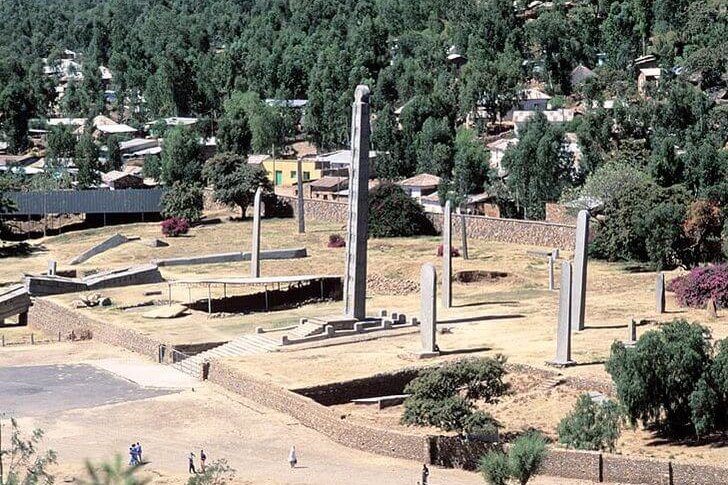
Address: Aksum city, Ethiopia, Ethiopia
Opening hours: 24/7
Fortress Fasil Gebbi
A complex of temples, palaces and castles of the 17th-18th centuries, listed by UNESCO. The fortress combines several architectural styles: Baroque, Arabic, Nubian and Indian. Several centuries ago, the building served as the residence of local rulers, now the complex is open to tourists.
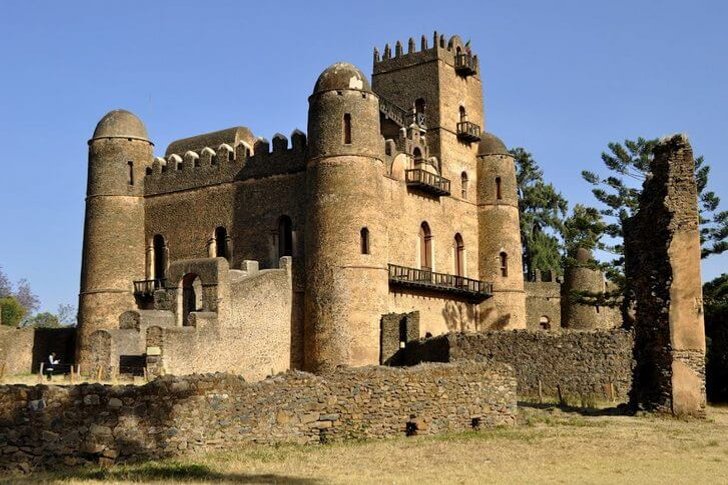
Address: Fortress Fasil Gebbi, Ethiopia, Ethiopia
Opening hours: 08:00 - 17:00
Church of Saint George in Lalibela
It was erected in the XII century. by the will of the king, who decided to found a new Jerusalem in the country. The temple is dedicated to the patron and protector of Ethiopia, St. George. The building was carved out of the rock in the form of a Greek cross going into the ground. The church is, as it were, immersed in a stone well 25 meters deep.
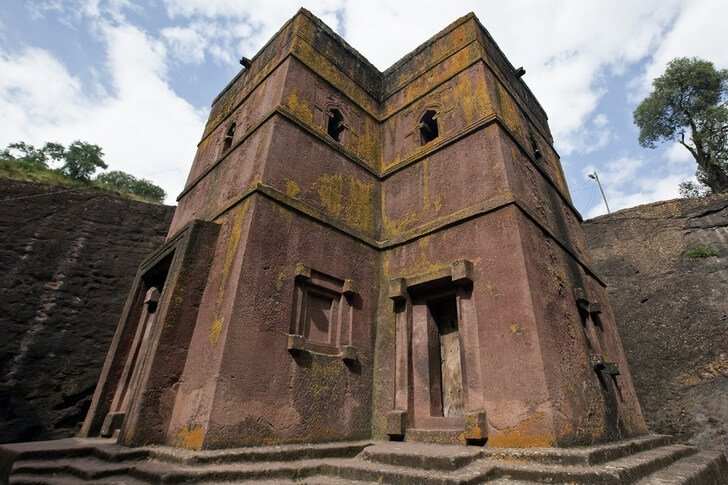
Address: Church of Saint George in Lalibela, Ethiopia, Ethiopia
Opening hours: 06:00 - 18:00
Baths of Fasilidas
Royal baths built under the Ethiopian ruler Fasilidas in the 17th century. Nowadays, they are used during the Timkat holiday, which the Ethiopian Orthodox Church arranges once a year. The pools are filled with water, and after the completion of the official ceremony, the residents take a dip.
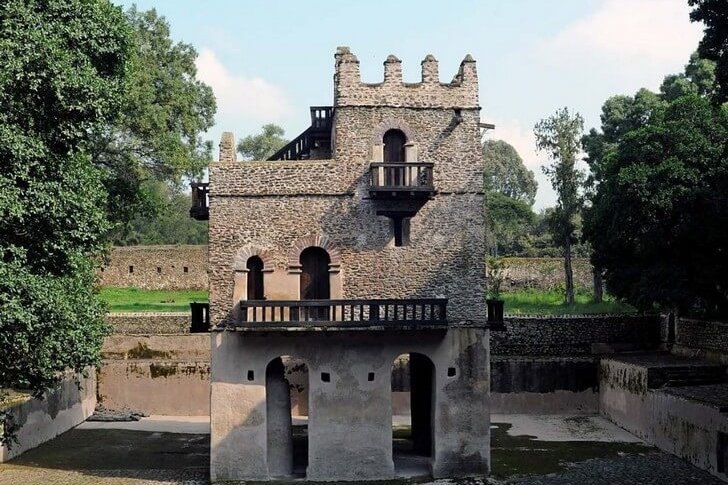
Address: Baths of Fasilidas, Ethiopia, Ethiopia
Opening hours: 08:00 - 17:00
Erta Ale Volcano
It is the most restless volcano in Ethiopia. In its crater is a red-hot lava lake. The continuous activity of the volcano has been going on since 1967. This is a constantly growing volcano - with each ejection of lava and eruption, the mountain rises higher and higher above the ground. Now its height is 613 meters.
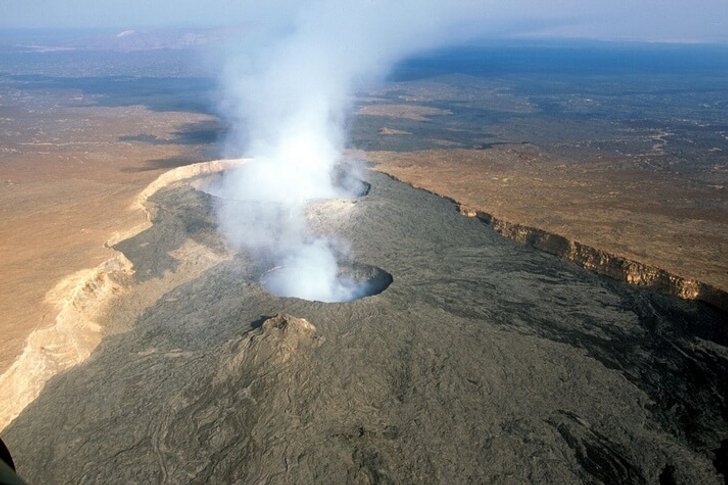
Address: Erta Ale Volcano, Ethiopia, Ethiopia
Opening hours: 24/7
Volcano Dallol
It is considered one of the most unusual places on Earth. According to some researchers, the landscapes of the surroundings resemble the landscapes of one of Jupiter's moons. After a strong explosion in 1926, a large yellow-purple lake was formed here, which is located 48 meters below sea level.
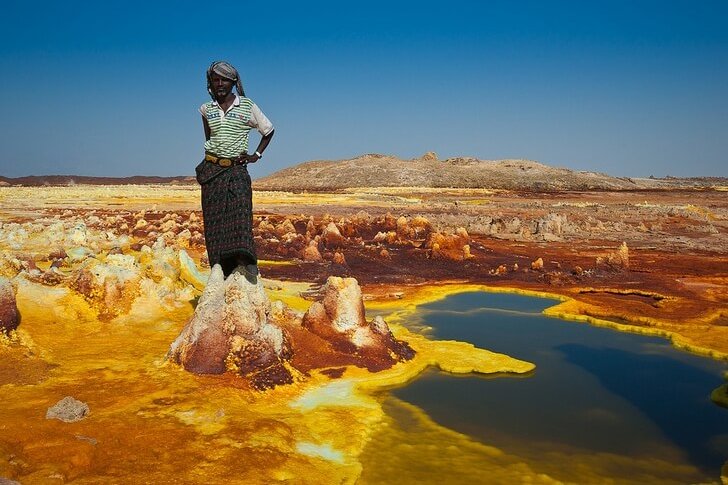
Address: Volcano Dallol, Ethiopia, Ethiopia
Opening hours: 06:00 - 18:00
Simien National Park
A unique natural monument with a total area of 22.5 thousand hectares. Here is the peak of Ras Dashen, reaching a height of 4620 meters. On the territory of the park there is an opportunity to see different natural zones of Africa: mountain deserts, savannahs, highlands. Also, a large number of unique and interesting animals live here.
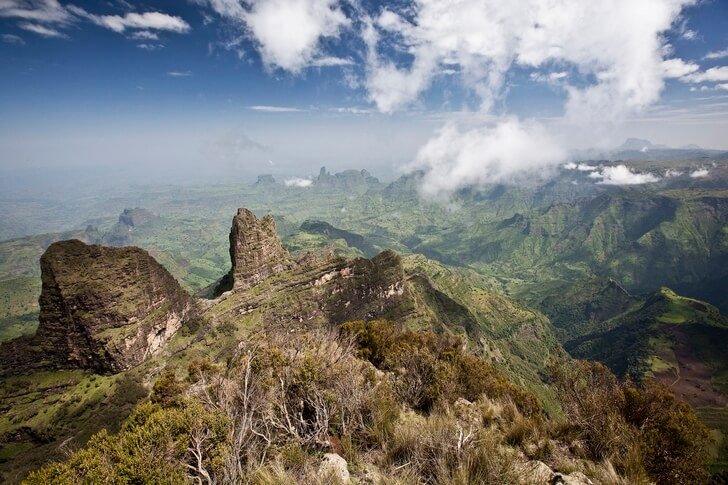
Address: Simien National Park, Ethiopia, Ethiopia
Opening hours: 06:00 - 18:00
Lake Tana
One of the main water arteries of Ethiopia. This is where the Blue Nile originates. A body of water is not only a vital source of water and food. A hydroelectric power plant using the waters of Tana provides energy for the whole of Ethiopia. There are 37 islands on the lake, 20 Christian monasteries and churches are built on them.
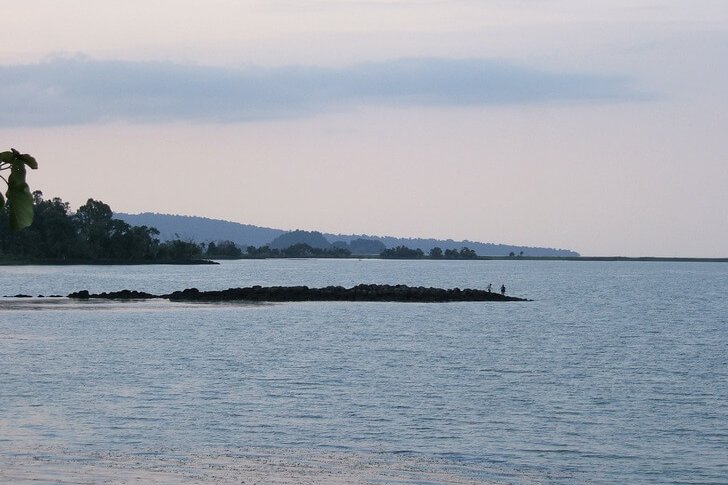
Address: Lake Tana, Ethiopia, Ethiopia
Opening hours: 24/7
Lake Abbe
Salt pond, located among completely unearthly landscapes. In these places you can find limestone pillars and towers, formations of the most unusual shapes and colors. Puffs of steam are constantly escaping from the ground, reminding of the powerful volcanic activity of the surrounding area.
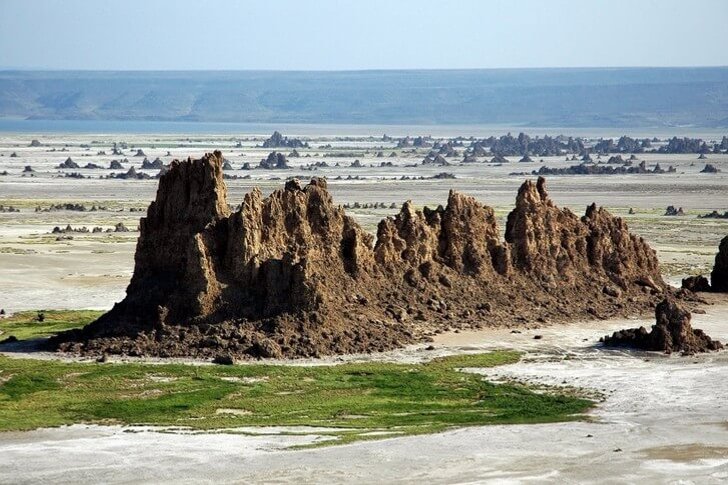
Address: Lake Abbe, Ethiopia, Ethiopia
Opening hours: 08:00 - 18:00
Sof Omar Cave
Large cave in Bale National Park. It was formed thanks to the Weib River, making its way through the mountain for thousands of years. For a long time it played the role of a religious center, was a sacred place for Muslims and for representatives of local pagan religions.
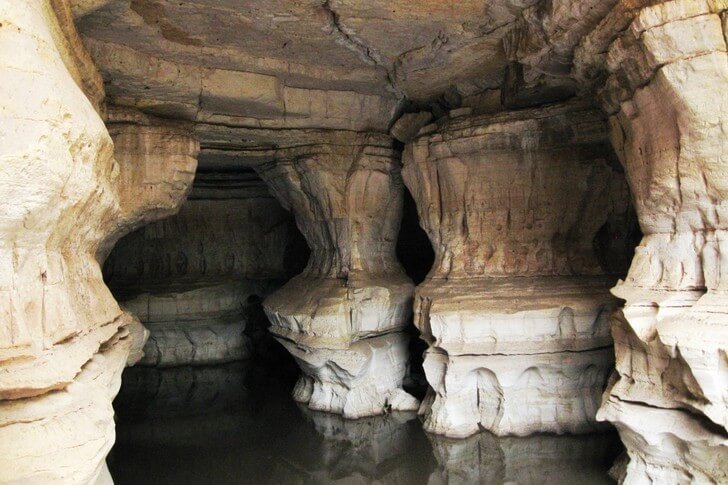
Address: Sof Omar Cave, Ethiopia, Ethiopia
Opening hours: Everyday: 8:00 AM - 5:00 PM
Awash River
A large full-flowing river, along which fertile plains stretch. Sugarcane and cotton have long been grown here. Along the banks of the river there is a national park, where large populations of antelopes and gazelles live. During a flood, the water level rises by almost 20 meters.
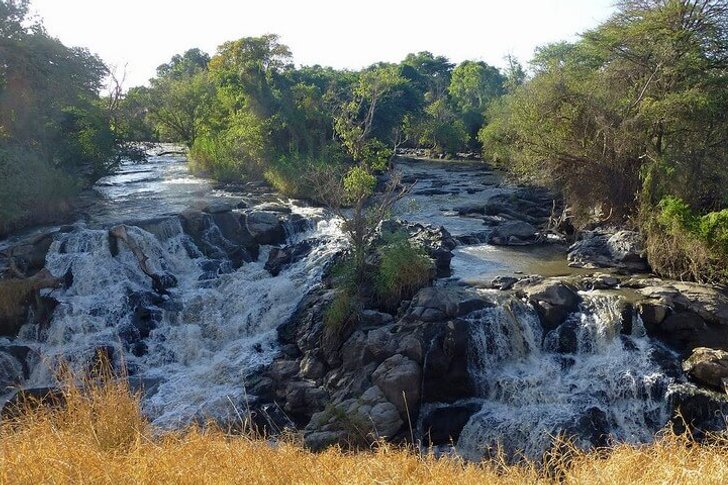
Address: Awash River, Ethiopia, Ethiopia
Opening hours: 08:00 - 18:00
Waterfall Tis-Ysat
One of the falls of the Blue Nile. A very picturesque natural landmark of Ethiopia, demonstrating the power and strength of the river. It is located near the popular tourist center - the city of Bahr Dar. A lot of tourists and locals come to admire the waterfall.
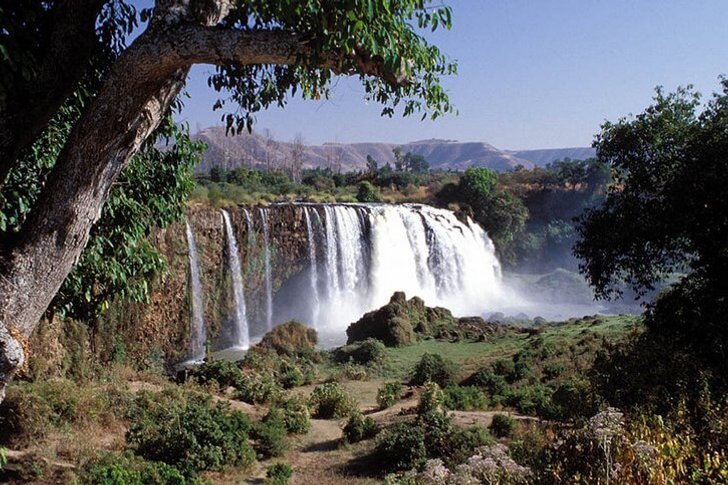
Address: Waterfall Tis-Ysat, Ethiopia, Ethiopia
Opening hours: 08:00 - 18:00
